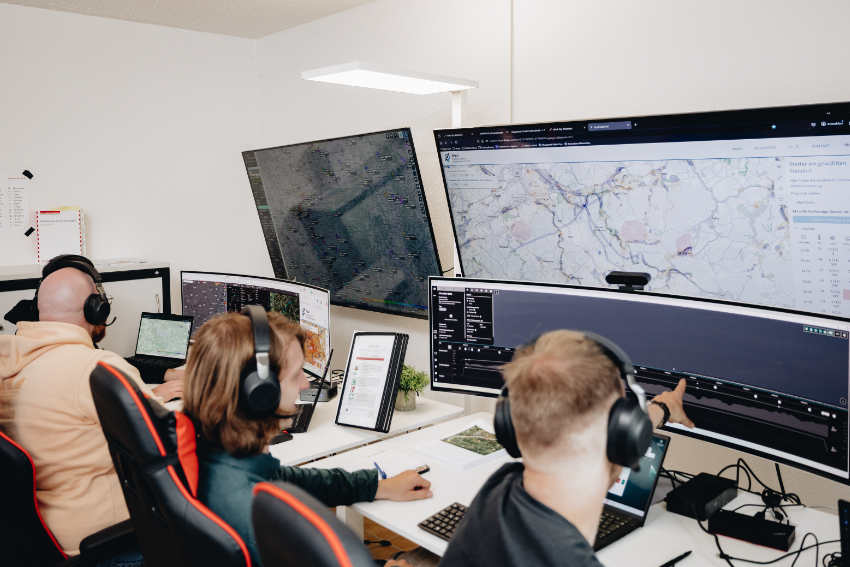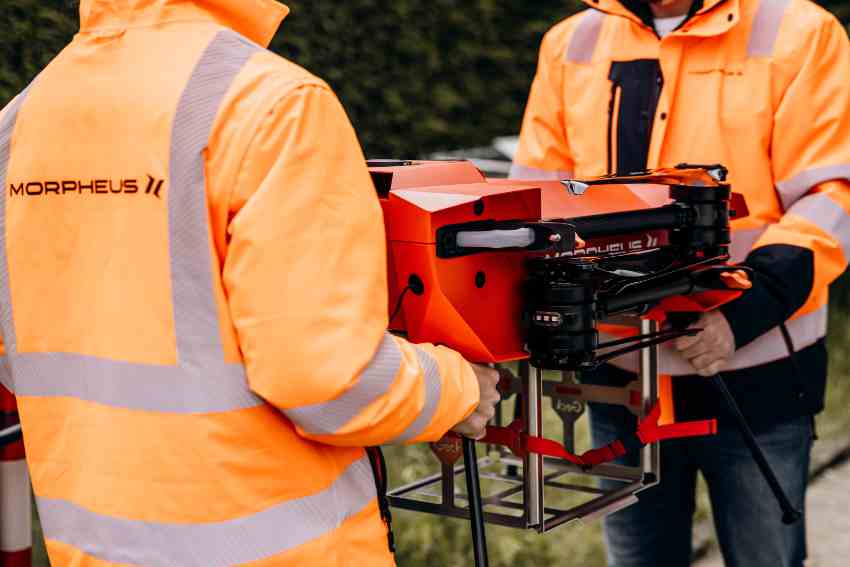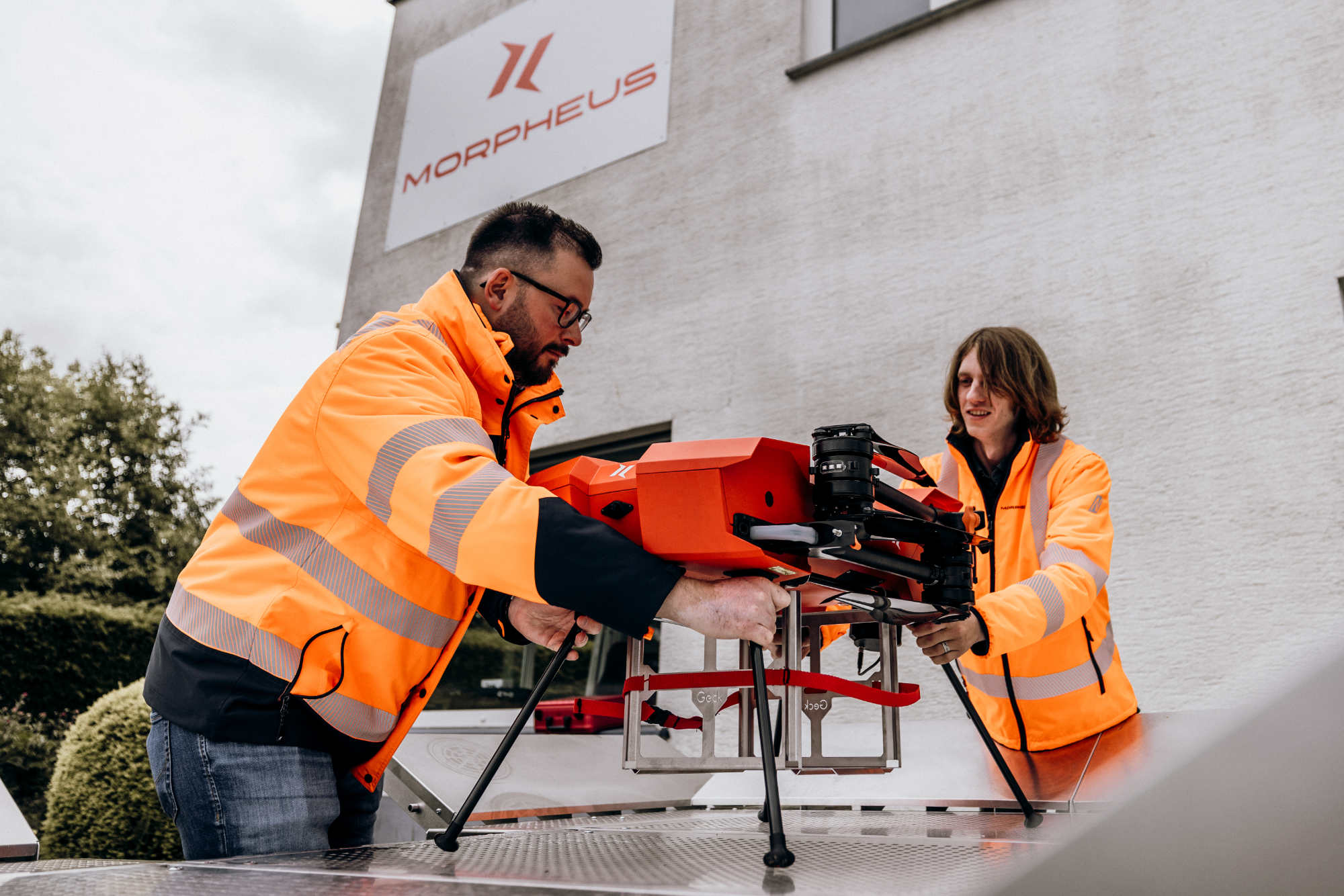Morpheus Logistik is a logistics startup based in Dortmund, Germany, with the goal of becoming Europe’s leading operator for automated drone logistics. They develop and operate approved drone flight routes for the transport of time-critical goods – for example, in industrial settings or healthcare. The company’s system is designed to be scalable and fully integrable into existing supply chains. While Morpheus doesn’t manufacture drones, but operate as Europe’s leading drones airline, tghey don’t see drones as gadgets, but as strategic infrastructure for modern logistics.
Interview with Norman Koerschulte, CEO of Morpheus Logistik.
What are the main areas of activity of the company?
Norman Koerschulte: Our core activities lie in operating drone logistics networks across two main sectors: healthcare and industry. In healthcare, we transport medical samples and urgent supplies between hospitals and laboratories. In industrial logistics, we enable just-in-time delivery of parts or materials across sites – including those that are remote or otherwise hard to reach. In addition, we develop and operate the digital infrastructure that powers these operations, including control centers and fleet management systems.
What’s the news about new products/services?
N.K: In 2025, we launched a groundbreaking service: Germany’s first routine medical drone transport between hospitals and laboratories using fully automated BVLOS (Beyond Visual Line of Sight) operations. This represents a new era in efficient medical logistics. We are also shaping the regulatory landscape around drone operations in Europe, advocating for practical policies that enable further growth and innovation.

What are the ranges of products/services?
N.K: Our service portfolio includes end-to-end drone transport operations, from planning and approvals to flight execution, monitoring, and reporting. We offer sector-specific logistics models tailored to healthcare, manufacturing, and energy. Furthermore, we provide our clients with integrated technology solutions – real-time fleet monitoring, IT and process integration, compliance support, and CO2 reduction in the supply chain. Each solution is modular and scalable, designed to meet individual operational needs.
What is the state of the market where you are currently active?
N.K: The drone logistics market in Europe is transitioning from pilot phases to commercial-scale operations. Demand is growing rapidly, particularly in sectors such as healthcare and industry where speed and precision are critical. At the same time, we face challenges related to regulation, airspace integration, and public acceptance. However, these are being addressed through policy dialogue and technological advancements. In short, the market is dynamic and full of opportunity for established operators like us.

What can you tell us about market trends?
N.K: Several trends are shaping our industry: First, BVLOS operations are becoming increasingly viable and scalable thanks to advances in automation and control systems. Second, drone logistics is being integrated into critical supply chains, particularly in the healthcare and industrial sectors. Third, sustainability is becoming a key differentiator, as drones offer significant CO₂ reductions compared to road transport. Finally, we are seeing a push for unified regulations across Europe, which will enable broader adoption of drone logistics in the coming years.
What are the most innovative products/services marketed?
N.K: Our most innovative offering is the fully integrated medical drone logistics solution we’ve implemented with HHLA Sky and Eurofins. It includes automated route planning, flight management, and real-time control from a centralized system. This setup enables multiple drone missions to operate in parallel with full safety and compliance, even in complex airspace. We also offer advanced logistics for offshore and remote locations – where traditional transport options are slow, costly, or weather-dependent. What sets us apart is that we provide not just the drone, but the entire operational and digital ecosystem around it.

What estimations do you have for the end of 2025?
N.K: By the end of 2025, we expect to have expanded our operational footprint – especially in the healthcare sector, where drone logistics is becoming an integral part of emergency and routine medical transport. We anticipate high double-digit growth in the number of commercial drone missions we conduct, driven by both domestic demand in Germany and expansion into neighboring markets. Technologically, our control center and automation platform will be scaled to handle larger fleets with higher efficiency. From a market perspective, we believe that drone logistics will be firmly established as a viable alternative to traditional methods, particularly in time-sensitive and sustainability-driven sectors. Regulatory clarity and infrastructure improvements will play a crucial role in unlocking a far greater potential. This potential shows in future possible use cases that we are eager to serve as well.


